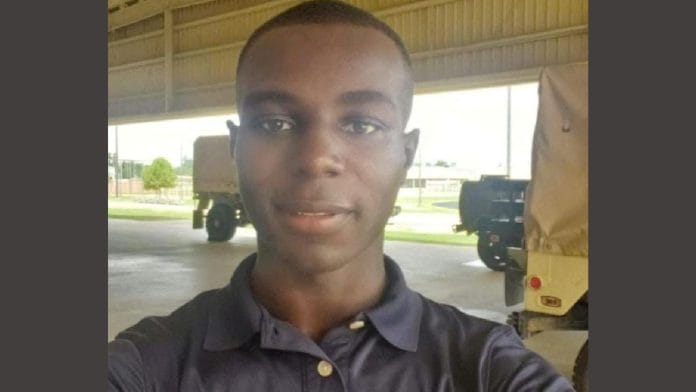Seoul/Washington: North Korea remained silent on Thursday about a U.S. soldier who split from a tour group and made a dash across the heavily fortified border two days earlier, landing Washington in a new diplomatic quandary amid an already tense military standoff.
U.S. officials said Pyongyang has not responded to communication from the American military about the soldier, Private Travis T. King. North Korea’s state media, which in the past reported on the detention of U.S. nationals, have also not commented on the incident so far.
State Department spokesperson Matthew Miller told a briefing the Pentagon had “reached out” to counterparts in North Korea’s Korean People’s Army about King.
“My understanding is that those communications have not yet been answered,” he added.
The incident comes at a time of heightened tension on the Korean peninsula. The North has been pressing on with ballistic missiles tests, the latest timed for the arrival in the South of a U.S. nuclear-armed ballistic missile submarine for the first time since the 1980s.
Last week, the North launched its newest solid-fuel intercontinental ballistic missile which it said had the longest flight time ever, a test that experts described as a “remarkable” success.
King was on a civilian tour of the Panmunjom truce village when he suddenly dashed across the Military Demarcation Line that has separated the two Koreas since the Korean War ended in 1953 with an armistice.
King had been fined for assault while stationed in South Korea, and served detention before he was being escorted to the airport this week to fly back to the United States, two U.S. officials said.
Under circumstances that remained unclear, he turned around after passing through security at the gate and fled. Later, he was with a group of about 40 on a tour of the Joint Security Area (JSA) on the military border.
Chaotic scene unfolds on border
In chaotic scenes, King made a dash between the iconic blue buildings that straddle the border and ran over the line, a witness who was on the same tour said.
“Someone ran close to me very fast and I thought, ‘What is going on?’,” Sarah Leslie from New Zealand told Reuters. “I don’t think anyone who was sane would want to go to North Korea, so I assumed it was some kind of stunt.”
The U.S. government appeared to make little headway in determining the fate of the soldier.
State Department spokesman Miller said Sweden has been engaged as it acts as a diplomatic channel for Washington which remains technically at war with North Korea.
“We are still trying to gather information here about the whereabouts of Private King,” he said. “The administration has and will continue to actively work to ensure his safety and return him home to his family.”
A U.S. official told Reuters the United States had made multiple attempts to contact North Korea through Sweden but there had been no response.
“They’re not answering,” the official said.
White House spokesperson Karine Jean-Pierre told a briefing the Biden administration was still gathering the facts.
South Korea’s defence ministry said it was communicating with the United Nations Command that oversees the JSA, but did not comment further.
North Korea has previously detained Americans who entered the country and put them on trial but eventually released them, often following high-level diplomatic intervention. But incidents involving U.S. servicemen have been rare.
In a case that remains unexplained, an American college student Otto Warmbier was held for more than a year and was returned to the United States in a coma and died days later.
A former North Korean diplomat who defected to South Korea said King may be used as a propaganda tool, but it was not clear how long North Korea would want to exploit his presence.
(Reporting by Ju-min Park, Soo-hyang Choi in Seoul, Phil Smith, Steve Holland in Washington; Writing by Jack Kim; Editing by Ed Davies and Lincoln Feast)
Disclaimer: This report is auto generated from the Reuters news service. ThePrint holds no responsibilty for its content.
Also Read: For North Korea, US defectors can be a propaganda win, but a logistical pain






